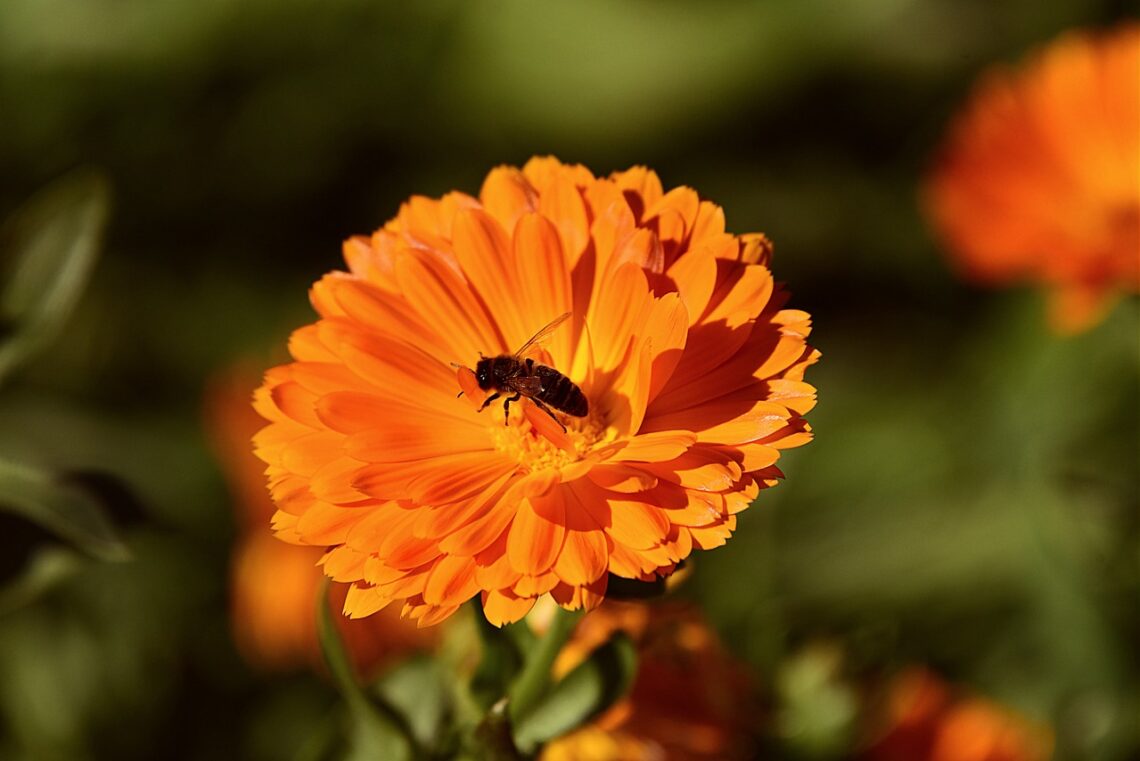Check out this list of 16 Best Pest Repellent Plants that keep the nasty bugs away from your garden area and invite pollinators, too.
Growing pest-repellent plants in your garden to keep nasty bugs away is a great idea that protects your plants and enhances the beauty of your place. These plants also attract beneficial pollinators to your yard.
Pest Repellent Plants
1. Citronella
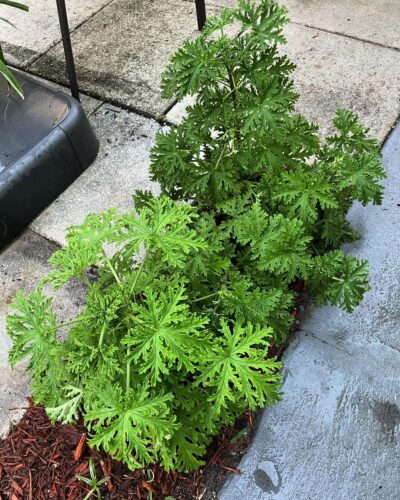
Botanical Name: Cymbopogon nardus
Citronella not only repels mosquitoes but also prevents thrips, aphids, whiteflies, squash bugs, tomato hornworms, and Mexican bean beetles. It is also a common ingredient in mosquito repellants.
2. Basil
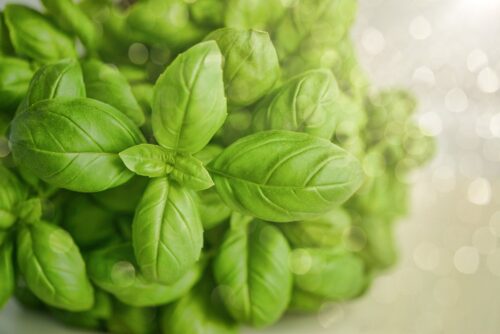
Botanical Name: Ocimum basilicum
Basil repel mosquitoes, flies, asparagus beetles, carrot fly, and whiteflies. This herb can be grown as a houseplant and outdoors as well in soil or water. Nasty pests dislike the aromatic leaves of this popular herb.
3. Marigolds
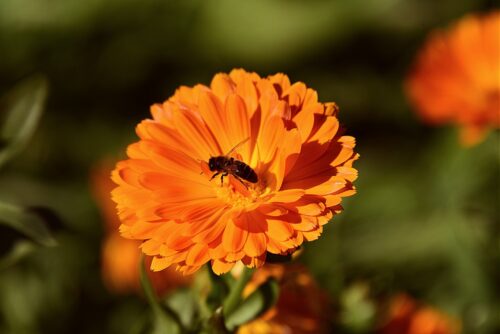
Botanical Name: Tagetes
You can use marigolds to control pests. Their fragrance deters aphids and mosquitoes. Grow them in sunny locations in your yard.
4. Lavender
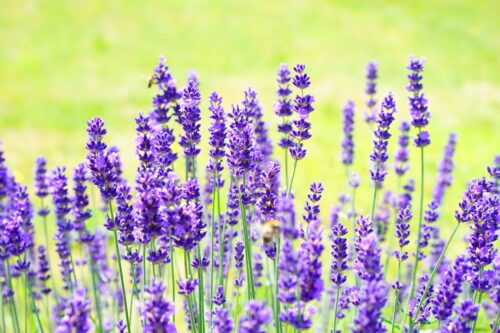
Botanical Name: Lavandula
Lavender has been loved for centuries for its intoxicating fragrance. Planting lavender can get rid of fleas, flies, water scorpions, mosquitoes, and moths.
5. Petunia
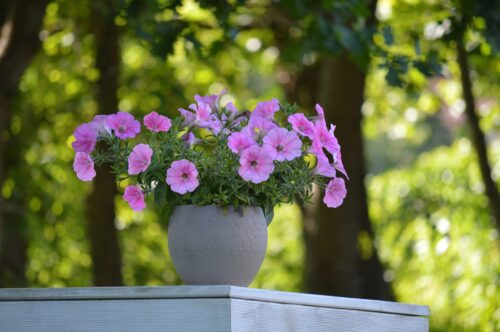
Botanical Name: Petunia
Petunias are also known as natural pesticides; they can deter insects and bugs. This beautiful plant is easy to care for and available in a range of hues. Plant them in a sunny location beside herbs or vegetables.
6. Borage
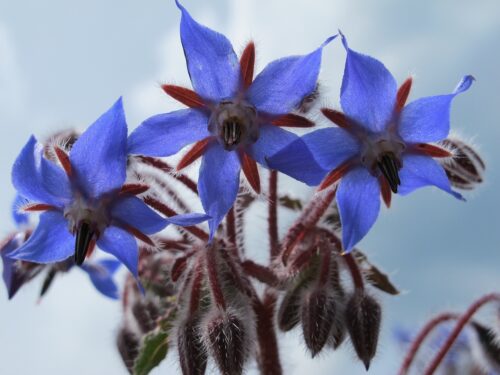
Botanical Name: Borago officinalis
Borage is a great companion plant that deters many insects; it is also quite disease-resistant. It is mainly good for cucumbers, gourds, strawberries, cabbage, and tomatoes.
7. Catnip
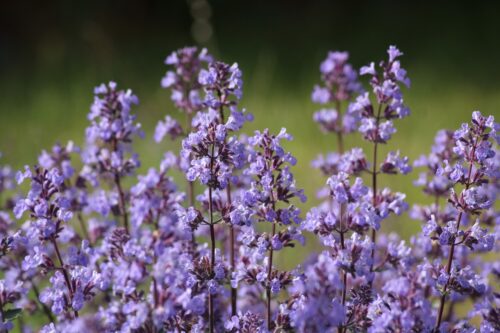
Botanical Name: Nepeta cataria
According to a study, the smell of catnip can whiz off mosquitoes. Nepetalactone, a component of DEET, works ten times more than DEET and repels pests.
8. Hyssop
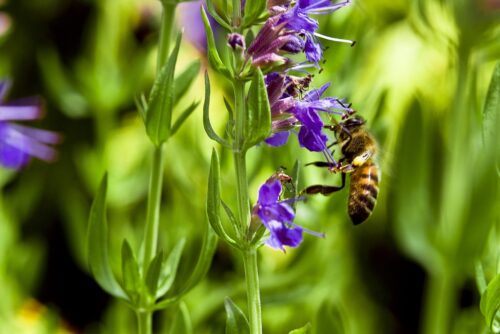
Botanical Name: Hyssopus officinalis
You can grow hyssop to deter the cabbage looper and small white flies. It also attracts honeybees to the garden.
9. Chives
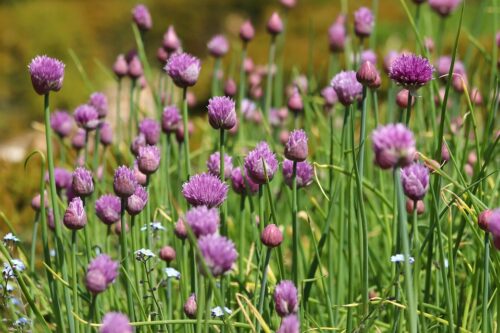
Botanical Name: Allium schoenoprasum
Grow chives in your garden to repel carrot rust flies and Japanese beetles. You can plant chives between apple trees to prevent scab.
10. Chrysanthemum
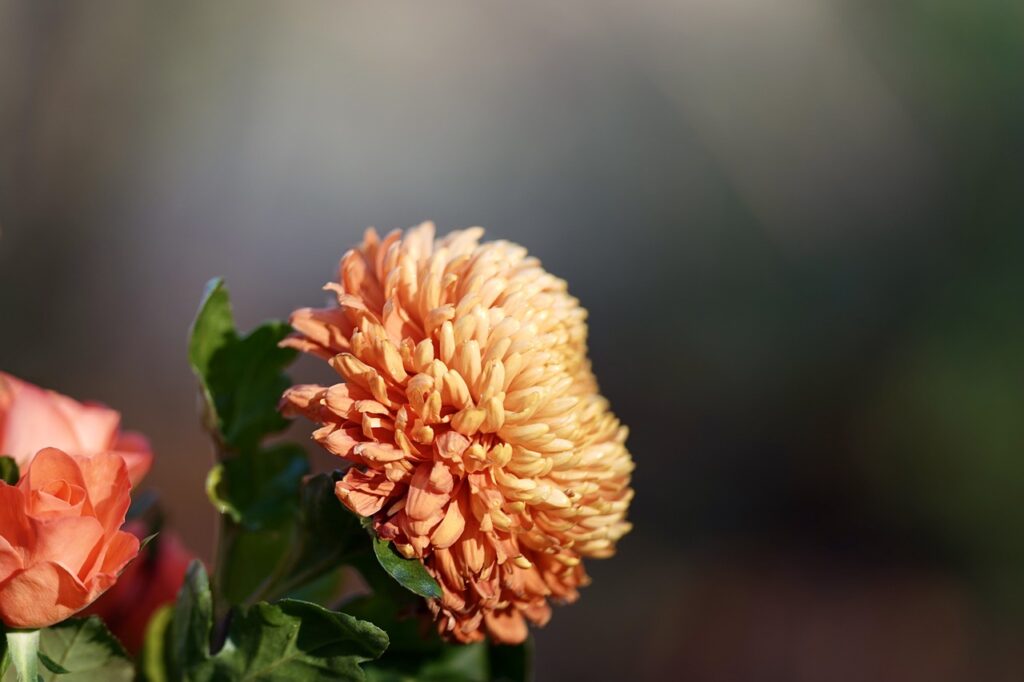
Botanical Name: Chrysanthemum
Mums also help in deterring pests like; ticks, spider mites, fleas, aphids, and roaches from your home. The component that repel pests is pyrethrum, it is also used in many sprays and pet shampoos.
11. Rosemary
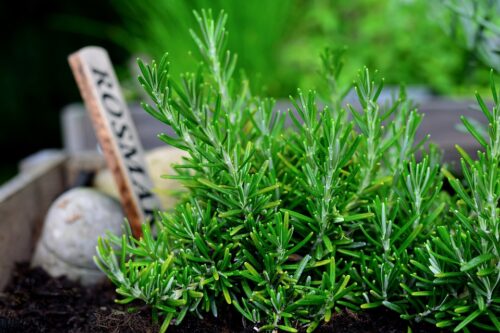
Botanical Name: Salvia rosmarinus
The woody smell of rosemary wards off many harmful pests, but mainly, mosquitoes and insects dislike it. If you burn the leaves, they emit a powerful odor, which acts as a pest deterrent.
12. Dill
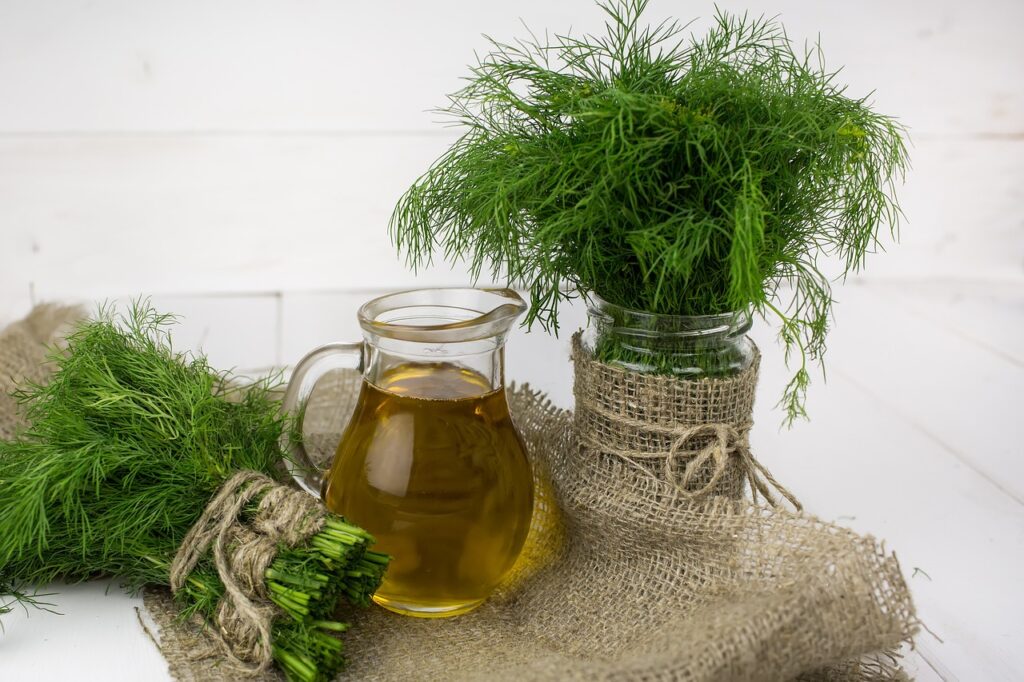
Botanical Name: Anethum graveolens
Grow dill with onions and cucumbers, it lures hoverflies, and predatory wasps, swallowtail butterfly caterpillars munch on the leaves. It also prevent aphids and spider mites.
13. Garlic
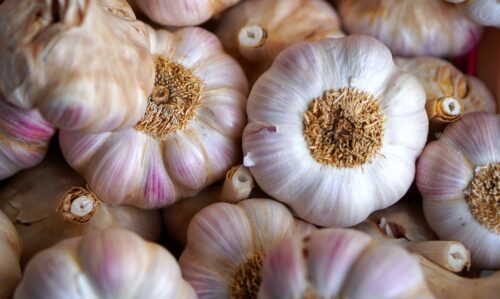
Botanical Name: Allium sativum
You can plant garlic for repelling moths, root maggots, snails, Japanese beetles, and carrot root flies. It also deters aphids near roses.
14. Bee Balm
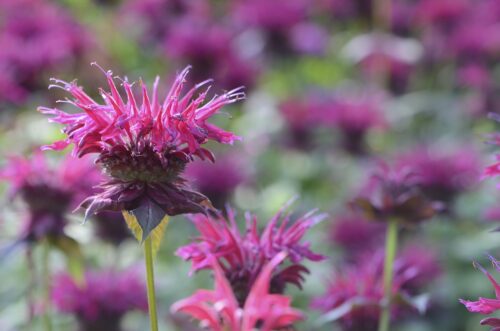
Botanical Name: Monarda didyma
It invites bees to your garden and can be planted with tomatoes as well. Just like basil, it emits a fragrance that mosquitoes hate.
15. Nasturtiums
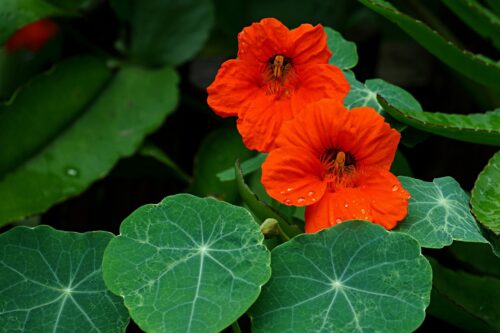
Botanical Name: Tropaeolum
You can grow nasturtium with cucumbers and tomatoes to prevent wooly aphids, squash bugs, whiteflies, and cucumber beetles.
16. Sunflowers
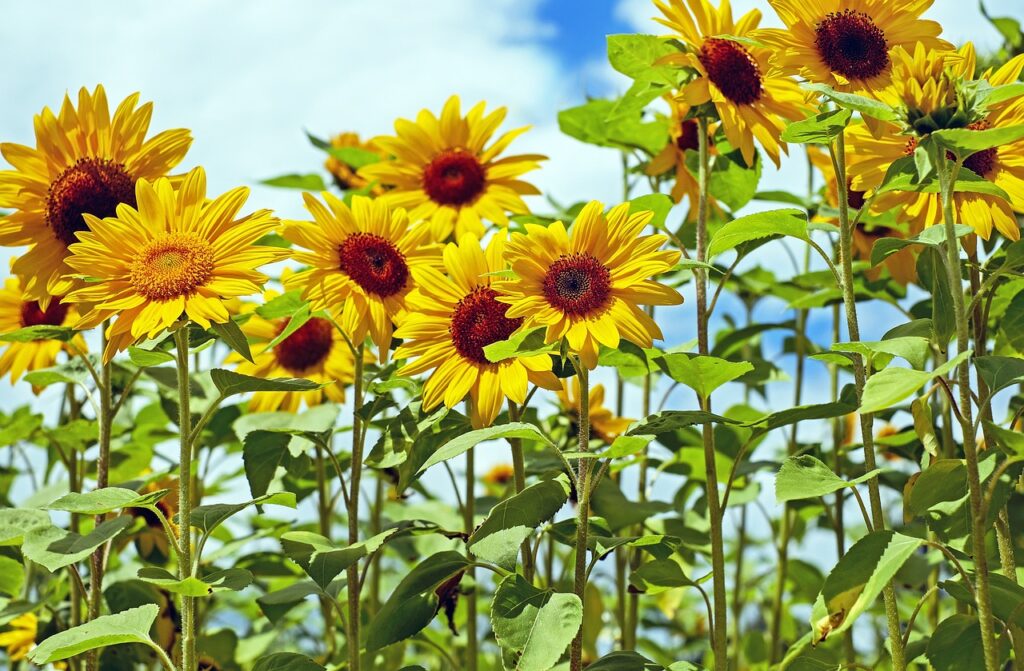
Botanical Name: Helianthus annuus
Sunflowers keep the aphids away from your plants, ants take their colonies onto sunflowers but cannot cause any damage to it.

